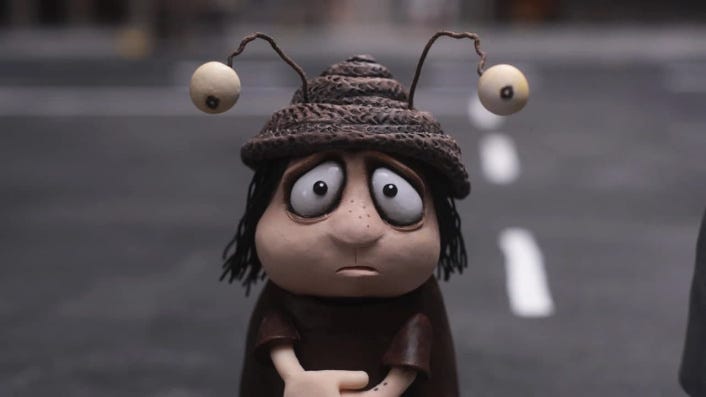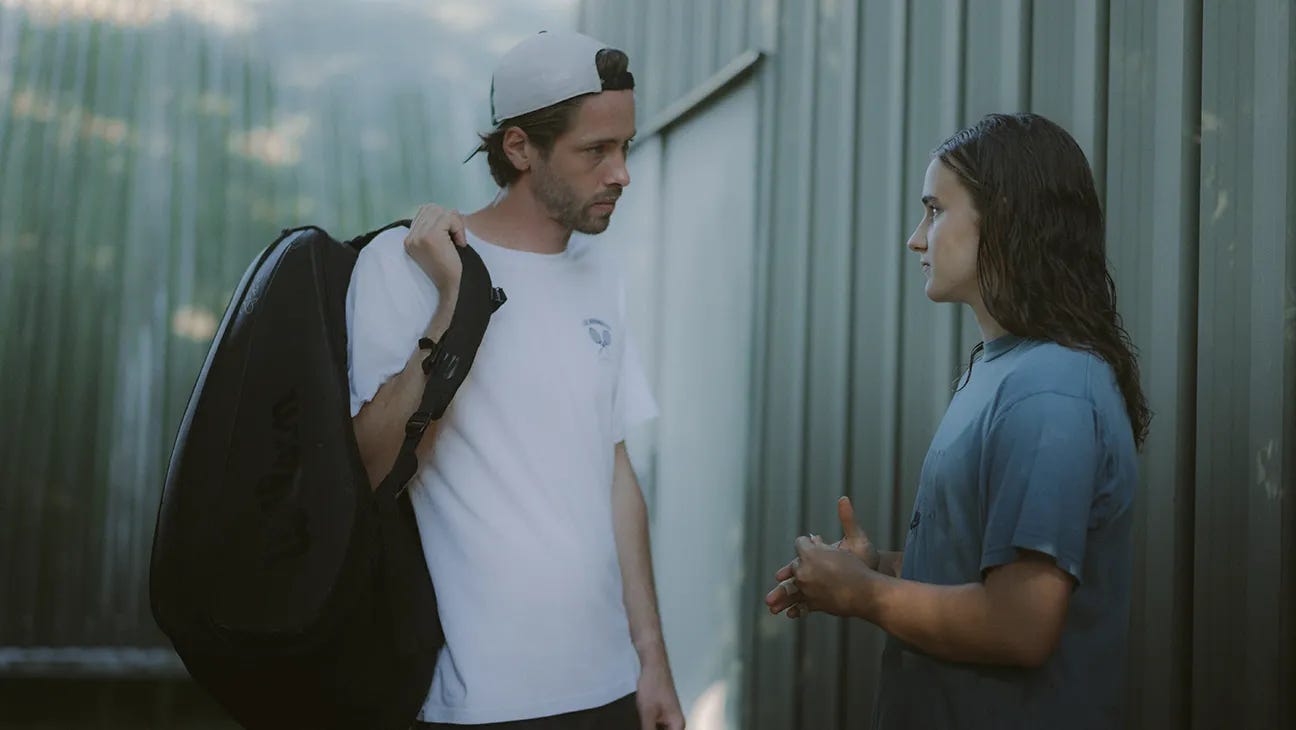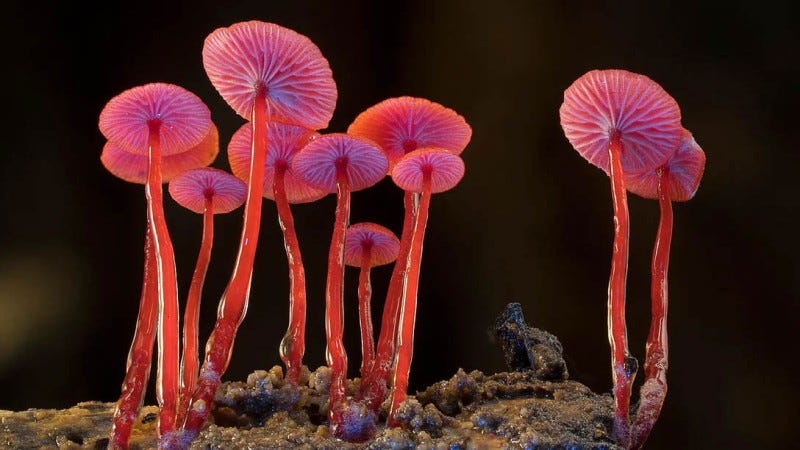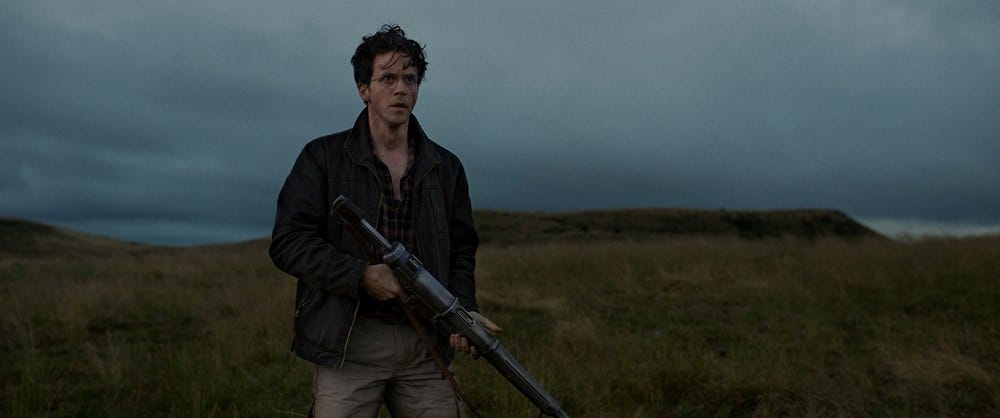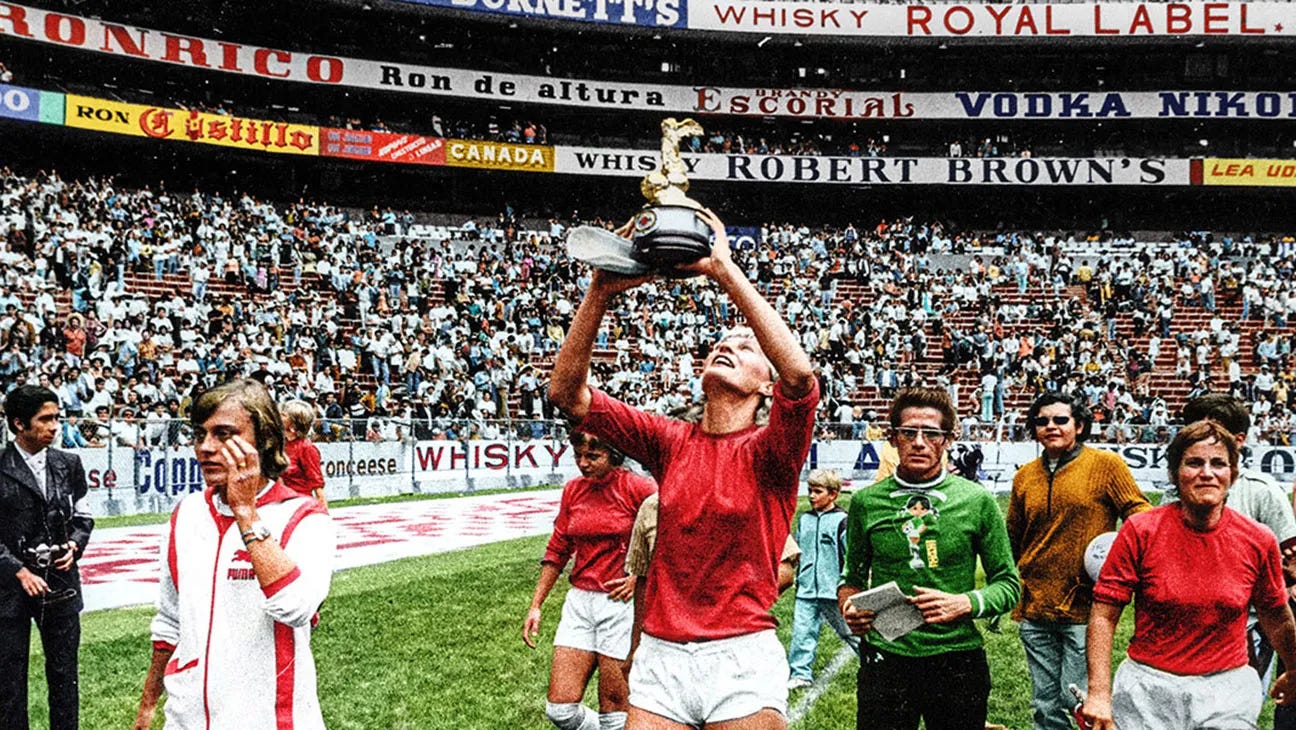This year’s Melbourne International Film Festival boasted an impressive and overwhelming line-up of more than 250 films from over 62 countries. I managed to pick out five that looked interesting from their website before I got lost down a rabbit hole. Here’s what I thought of each film.
Memoir of a Snail dir. Adam Elliot
In 1970s Australia, Grace’s life is troubled by misfortune and loss. After their mother dies during pregnancy, she and her twin brother, Gilbert, are raised by their paraplegic-alcoholic former juggler father, Percy. Despite a life filled with love, tragedy strikes anew when Percy passes away in his sleep. The siblings are forcibly separated and thrust into homes on the opposite sides of the country.
It was wonderful to see not only an Australian film but a Melburnian film on the opening night of MIFF. Memoir of a Snail is a stop motion animation film from Australian director Adam Elliot and starring the voice of Succession’s Sarah Snook as Grace.
Memoir of a Snail follows a predictable but still very enjoyable coming of age arc as Grace tries to move on from her tragic childhood and become an independent adult. While the tone veered too melodramatic at times, eventually it tugged on the right heartstrings. Plus, it was great to see an Australian film acknowledge the existence of Canberra.
The 2025 Oscars are still very far away, but it’s exciting to see this Australian movie on Variety’s radar at the very least.
Julie Keeps Quiet dir. Leonardo Van Dijl
As the star player at an elite tennis academy, Julie’s life revolves around the game she loves. When her coach falls under investigation and is suddenly suspended, all of the club’s players are encouraged to speak up. But Julie decides to keep quiet.
There will definitely be a crowd of people who call this movie too slow. If you can’t stand a movie where the plot doesn't advance every five minutes or you find yourself guilty of checking your phone in the cinema, then this one definitely isn’t for you. I, however, who sat through all three hours of Drive My Car, thought that the slowness of this movie was haunting and earned.
Why do we expect so much of victims and not perpetrators? Why should they have such lofty expectations to save the day put on their shoulders instead of the people who should have been protecting them?
This Belgian French- and Flemish-language film (with an extra sprinkling of German just to keep you on your toes) reveals a sophisticated style from debut director Leonardo Van Dijl. Tessa Van den Broeck delivers a brilliant breakout performance as Julie. While the majority of the movie is quiet, as the title suggests, the well-timed choral music from Caroline Shaw is excellent too.
I would absolutely love to see this in contention for the Oscars and it’s frustrating that it’s going to be better than half the movies nominated.
Fungi: Web of Life dir. Gisela Kaufmann and Joseph Nizeti
Much of life on Earth is connected by a vast, hidden network that we are only just beginning to understand. Out of sight, between the world of plants and animals, another world exists—the kingdom of fungi.
Fungi: Web of Life is a 45-minute three-dimensional documentary film which tells the story of the world’s fungi narrated by Icelandic singer-songwriter Björk. While it might sound like an eclectic recipe for a film, the result is a stunning and beautiful production.
The absolute marvel of this film are the various time lapses of growing fungi shot by Stephen Axford, Patrick Hickey and Wim van Egmond. What might only be a few centimetres tall in real life has been expanded into incredibly tall IMAX vision.
In Vitro dir. Will Howarth and Tom McKeith
On an isolated cattle farm, a couple experimenting with biotechnology have their lives upended when they discover a disturbing presence on their property.
In Vitro feels like an Australian take on a missing episode of Black Mirror and I loved it. Sure, it was messy and some parts of the plot might fall apart if you think about them too much, but it had the guts to ask some big questions and I enjoyed it.
There’s much to love about Shelley Farthing-Dawe’s great cinematography of the isolated Australian bushland and the impressive industrialist design of the near-future farm.
Those who are faint of heart, like me, do be warned that this thriller does borrow some conventions from the horror genre and veers into actual scary territory as opposed to simply having general spooky atmospheric vibes. Maybe watch it with the lights on instead of late on a Thursday night in a pitch-black cinema (although I did enjoy listening to other people’s gasps).
COPA 71 dir. James Erskine and Rachel Ramsay
The extraordinary story of the 1971 Women’s World Cup, which was held in Mexico City and witnessed by more than 100,000 fans. This landmark tournament was dismissed by FIFA and written out of sports history—until now, with dazzling archival footage and interviews with the former players.
I’ll happily admit it: I cried watching COPA 71. Women over history have fought so many hard, pointless battles to simply play sport. Women’s football used to be illegal in many countries, including England where it was banned until as recently as 1970.
Directors Erskine and Ramsay have done a fantastic job of tracking down many of the key players from the ‘unofficial’ World Cup in 1971 as they give terrific interviews recounting their experience of the tournament. The emotions on display are real, raw and truly remarkable.
COPA 71 is a brilliant rebuttal to all the recurring arguments we see against women's sport: it’s not profitable and nobody watches it. Those of us who actually care about women’s sport know that this has never been the issue and that the real problem is men with power who are unwilling to share it. COPA 71 does not shy away from sharing the foul things that they have said and continue to say today as they block women’s sport from success.
The Melbourne International Film Festival will return in August 2025.


